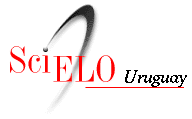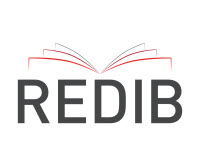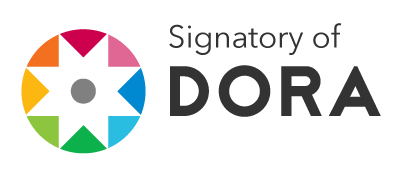Organización del conocimiento y alfabetización informacional en el mundo digital: un diálogo necesario
Resumen
Se examina el diálogo interdisciplinario entre la organización del conocimiento y la alfabetización informacional, y se defiende la necesidad teórica y práctica de esta conversación. Se adopta el punto de vista de la comunidad de la organización del conocimiento como perspectiva principal, aunque se tienen en cuenta ambas disciplinas. En primer lugar, se ofrece un diagnóstico prospectivo de ambas disciplinas en relación a sus bases comunes para un diálogo fructífero. En una segunda etapa, se examina en detalle la discusión que se ha realizado sobre la alfabetización informacional en el campo de la organización del conocimiento. Finalmente, se concluye que la alfabetización informacional debe incorporar necesariamente la alfabetización en organización del conocimiento, aunque con una consideración cuidadosa de las competencias y necesidades de los usuarios; y, viceversa, que la alfabetización informacional debe considerar la alfabetización informacional como un motor clave de su futuro desarrollo disciplinario y social. Además, los sistemas y herramientas de organización del conocimiento se están utilizando de manera efectiva para mejorar la experiencia del usuario en acciones y productos de alfabetización informacional específicos, principalmente mediante el uso de taxonomías y ontologías en sitios web, herramientas de evaluación y proyectos de gamificación.
Descargas
Citas
Association of College and Research Libraries (2015). Framework for information literacy for higher education. Chicago: ACRL. http://www.ala.org/acrl/standards/ilframework
Audunson, R. (2018). Do We Need a New Approach to Library and Information Science?. Bibliothek Forschung und Praxis, 42(2), 357-362. https://doi.org/10.1515/bfp-2018-0040
Barite, M. (2025). Knowledge Organization and Terminology: intersections, interlocutions and projections. Informatio, 30(1).
Bates, M.J (1999). The invisible substrata of information science. Journal of the American Society for Information Science, 50 (12), 1043-1050.
Green, R. (Ed.) (1996). Knowledge Organisation and Change: Proceedings of the Fourth International ISKO Conference, 15-18 July 1996, Washington, DC, USA. Organized by the Office of the Director for Public Service Collections, Library of Congress, the ISKO General Secretariat and OCLC Forest Press. Frankfurt/Main: Indeks Verlag.
Dahlberg, I. (1993). Knowledge organization: its scope and possibilities. Knowledge Organization, 4(20), 211‐22. https://www.nomos-elibrary.de/de/10.5771/0943-7444-1993-4-211.pdf
García-Marco, F.J.; Esteban Navarro, M.E. (1993). On some Contributions of the Cognitive Sciences and Epistemology to a Theory of Classification. Knowledge Organization, 20(3), 126-132. https://doi.org/10.5771/0943-7444-1993-3-126.
García-Marco, F.J. (2011). Libraries in the digital ecology: Reflections and trends. The Electronic Library, 29(1), 105-120. https://doi.org/10.1108/02640471111111460
García Marco, F.J. (2016). The Interaction between the Systematic and Alphabetical Approaches to Knowledge Organization and Its Subjacent Mechanisms: a Long-term Primary Wave?. In: Guimarães, J.A.C.; Milani, .O.; Dodebei, V. (eds.). Knowledge Organization for a Sustainable World: Challenges and Perspectives for Cultural, Scientific, and Technological Sharing in a Connected Society: Proceedings of the Fourteenth International ISKO Conference 27-29 September 2016 Rio de Janeiro, Brazil (pp. 105-111). Würzburg: Ergon-Verlag GmbH.
Guimarães, J.A.C., Fernandez-Molina, J.C, Pinho, F.A. & Milani, S.O. (2008). Ethics in the knowledge organization environment: an overview of values and problems in the LIS literature. In: Arsenault, C. & Tennis, J.T. (Ed.). Cultural and Identity in Knowledge Organization (pp. 340-346). Würzburg: Ergon Verlag.
Hjørland, B. (2018). Library and Information Science (LIS). Part 1. Knowledge Organization 45(3), 232-254. Also available in Hjørland B. & Gnoli, Claudio (eds.). ISKO Encyclopedia of Knowledge Organization. https://www.isko.org/cyclo/lis
Hjørland, B. (2018). Library and Information Science (LIS). Part 2. Knowledge Organization 45(4), 319-338. Also available in Hjørland B. & Gnoli, Claudio (eds.). ISKO Encyclopedia of Knowledge Organization. https://www.isko.org/cyclo/lis
Hjørland, B. (2016). Knowledge organization. Knowledge Organization, 43(6), 475-84. Also available in Hjørland, Birger, ed. ISKO Encyclopedia of Knowledge Organization, https://www.isko.org/cyclo/knowledge_organization
Hjørland, B. (2021). Science, Part 1: Basic conceptions of science and the scientific method. Knowledge Organization, 48(7-8), 473-498. Also available in Hjørland B. & Gnoli, Claudio (eds.). ISKO Encyclopedia of Knowledge Organization. https://www.isko.org/cyclo/science
Hjørland, B. (2022). Science, Part 2: The study of science. Knowledge Organization, 49(4), 273-300. Also available in Hjørland B. & Gnoli, Claudio (eds.). ISKO Encyclopedia of Knowledge Organization. https://www.isko.org/cyclo/science
Hjørland, B. (2023). Part 3: Further developments in the concept of science. Knowledge Organization 50(4), 290-300. Also available in Hjørland B. & Gnoli, Claudio (eds.). ISKO Encyclopedia of Knowledge Organization. https://www.isko.org/cyclo/science
Hvenegaard Rasmussen, C. & Hjørland, B. (2022). Libraries, archives and museums (LAMs): conceptual issues with focus on their convergence”. Knowledge Organization, 49(8), 577-621. Also available in Hjørland B. & Gnoli, Claudio (eds.). ISKO Encyclopedia of Knowledge Organization. https://www.isko.org/cyclo/lam
Gnoli, C. (2008). Ten Long-Term Research Questions in Knowledge Organization. Knowledge Organization, 35(3/2), 137-149. https://www.gnoli.eu/gnoli2008b.pdf
Huvila, I. (2011). The complete information literacy? Unforgetting creation and organization of information. Journal of Librarianship and Information Science, 43(4), 237-245. https://doi.org/10.1177/0961000611418812
Hjørland, B., & Gnoli, C. (2017-) ISKO Encyclopedia of Knowledge Organization. https://www.isko.org/cyclo/science
Kiel. E. (1993). Further education in knowledge organization: basic didactic considerations. Knowledge Organization, 20(2), p. 71-76.
Kozaki, K., Kanoh, H., Hishida, T., Hasegawa, M. (2015). An Information Literacy Ontology and Its Use for Guidance Plan Design: An Example on Problem Solving. In: Supnithi, T., Yamaguchi, T., Pan, J., Wuwongse, V., & Buranarach, M. (Eds). Semantic Technology. JIST 2014. Lecture Notes in Computer Science, vol 8943. Springer, Cham. https://doi.org/10.1007/978-3-319-15615-6_7
Leeder, C., Markey, K., & Yakel, E. (2012). A Faceted Taxonomy for Rating Student Bibliographies in an Online Information Literacy Game. College & Research Libraries, 73(2), 115-133. doi:https://doi.org/10.5860/crl-223
Lloyd, A. (2010), Framing information literacy as information practice: site ontology and practice theory. Journal of Documentation, 66(2), 245-258. https://doi.org/10.1108/00220411011023643
Moreira, W., Marques Redigolo, F., & Mendes da Silva, A. (2024). Conexiones entre organización del conocimiento y cohesión social en la ciencia de la información. Scire, 30(2), 13–26. https://doi.org/10.54886/scire.v30i2.4999
Ohly, H. P. (2008). Knowledge Organization 2.0: a communicative paradigm? (Lang.: eng.). In: ISKO-IWA meeting Knowledge organization on the Web, Naples, 5 September 2008. ISKO Italia. Paper. http://www.iskoi.org/doc/web/ohly.pdf
Ohly, H. P. (2012a). Mission, programs, and challenges of knowledge organization (Lang.: eng). In: Categories, Contexts and Relations in Knowledge Organization: Proceedings of the Twelfth International ISKO Conference 6-9 August 2012 Mysore, India: 13. Baden-Baden: Ergon. (Advances in Knowledge Organization).
Ohly, H. P. (2012b). ISKO: Knowledge Organization in a Changing World. Challeges, Programs, and Mission. In: Desafios e perspectivas científicas para a organização e representação do conhecimento na atualidade (pp. 238-248). Marília: ISKO-Brasil/FUNDEPE.
Sample, A. (2020). Historical development of definitions of information literacy: A literature review of selected resources. The Journal of Academic Librarianship, 46(2), 102-116, https://doi.org/10.1016/j.acalib.2020.102116.
Saracevic, T. (2009). Information science. In: Bates, M.J. & Maack, M. N. (Eds.) Encyclopedia of Library and Information Science (pp. 2570-2586). New York: Taylor & Francis.
Shiri, A. (2024). Artificial intelligence literacy: a proposed faceted taxonomy. Digital Library Perspectives, 40(4), 681-699. https://doi.org/10.1108/DLP-04-2024-0067
Terra, A. L. S. (2018). Information organization as a forgotten information literacy skill. In: 15th International ISKO conference: Challenges and opportunities for Knowledge Organization in the digital age, 9, 10 and 11 july 2018, Porto. Poster. https://ocs.letras.up.pt/index.php/isko2018/isko2018/paper/view/1437
Tomic, T. (2010). The philosophy of information as an underlying and unifying theory of information science. Information Research, 15(4), colis714. http://InformationR.net/ir/15-4/colis714.html
Varela, A.; Barbosa, M. L. A. (2012). A Dimensão social e cognitiva na organização e representação do conhecimento. In: Congresso brasileiro em organização e representação do conhecimento, 1, 2012, Marília: Anais […] (pp. 147-152). Marília: ISKO-Brasil. https://www.marilia.unesp.br/Home/Extensao/CEDHUM/livro-isko-brasil-finalizado.pdf
Derechos de autor 2025 Francisco Javier García Marco

Esta obra está bajo licencia internacional Creative Commons Reconocimiento 4.0.







.jpg)




















